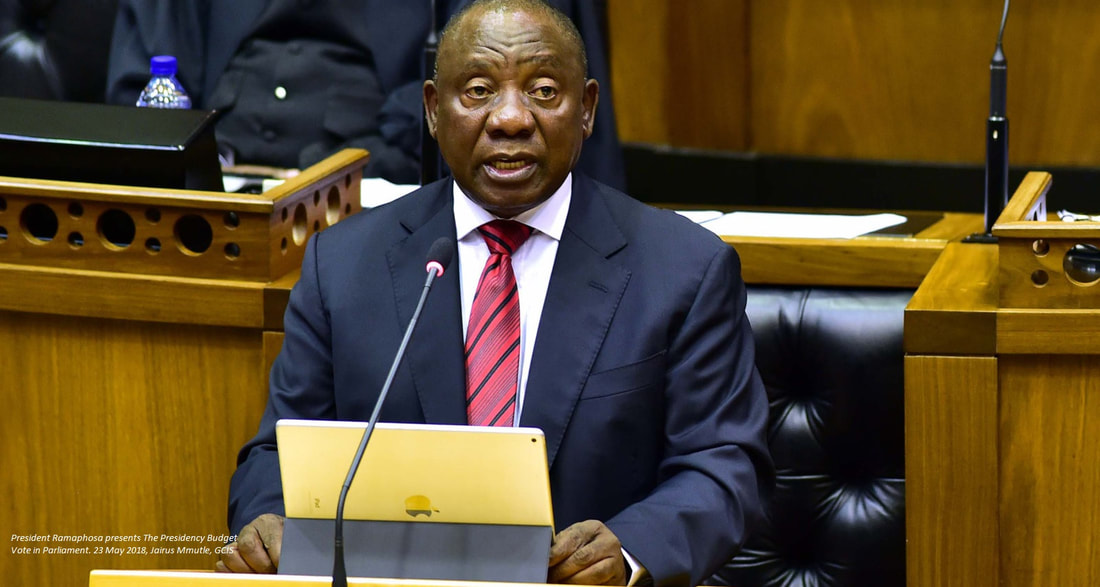|
President Ramaphosa’s State of the Nation speech for 2019 highlighted the key role that small businesses play in stimulating economic activity, and their impact on broad-based empowerment. A key element to building sustainable small and medium businesses (SMEs) is to ensure their governance structures and processes grow alongside their financials, says Parmi Natesan, CEO Elect of the Institute of Directors in Southern Africa (IoDSA).
“SMEs are drivers in an economy that is both inclusive and growing, but only if they can sustain their growth and provide stable livelihoods for more and more people. We thus need to pay equal attention to the post-incubation phase,” she argues. “Flexible and effective governance structures have a key role to play in the growth of an entrepreneurial start-up into a corporation.” Recent research by the Small Business Project[1] shows that while SMEs make up 98.5 percent of the South African economy, they only provide 28 percent of jobs. One reason is that 3.3 million of the approximately 5.6 million SMEs are classified as “survivalist”. Such businesses often only employ the owner and seldom show growth. By contrast, the research shows, in OECD countries, over 95 percent of enterprises are SMEs which provide up to 70 percent of all jobs and up to 60 percent of the gross domestic product. “Good corporate governance can help an SME by making its leadership structures more effective and thus better able to support its strategic objectives,” she says. Aside from the development of a more effective leadership structure, SMEs can derive other significant benefits from good corporate governance. These include:
King IV has been intentionally structured to make these benefits more accessible to SMEs. It does so by not focusing prescriptively on what should be done or what roles or committees are called, but on what the desired outcomes are. Crucially, it introduces the key concept of proportionality, in terms of which organisations can scale the practices they adopt in accordance with their turnover and workforce size, their resources, and the extent and complexity of their activities. King IV also includes a supplement to provide SMEs with specific but flexible guidance for how to adapt the Code to their needs. King IV thus recognises that governance delivers very desirable outcomes, but that each organisation is unique and must be able to adapt its practices to achieve the principles set out in the Code. “In the spirit of Thuma Mina (Send Me), the IoDSA is soon making an e-learning module on governance for SMEs available to them free,” concludes Natesan. “By making e-learning on corporate governance available free for SMEs, the IoDSA recognises the financial pressures that they face. We hope this initiative will play a part to help this vital sector of the economy reach its potential, to everybody’s benefit.” [1] “The alarming truth about the number of small businesses in South Africa”, Business Tech (25 July 2018), available at https://businesstech.co.za/news/business/260797/the-alarming-truth-about-the-number-of-small-businesses-in-south-africa/. ENDS MEDIA CONTACT: Stephné du Toit, 084 587 9933, [email protected], www.atthatpoint.co.za For more information on the IoDSA please visit: Website: www.iodsa.co.za Twitter: @The_IoDSA LinkedIn: Institute of Directors in Southern Africa Company Page
0 Comments
The Institute of Directors in Southern African (IoDSA) has welcomed government’s commitment to improve governance, strengthen leadership and restore stability in strategic state-owned enterprises (SOEs).
President Cyril Ramaphosa said in his 2019 State of the Nation Address that government is taking measures where mismanagement and corruption have undermined the effectiveness of these enterprises. This included the appointment of new boards with “credible, appropriately experienced and ethical directors”. Parmi Natesan, CEO Elect of the IoDSA, says they have consistently highlighted the need for appointment of skilled individuals to boards and thorough due diligence on those appointments. “Board appointments in the public sector specifically, should be based on expertise, experience and integrity and not, by implication, on political connections.” Directors need to have the requisite knowledge, skills, experience and personal qualities, and should be appointed through a formal process. This is critical in any organisation, but particularly for SOEs because of their influence on the rest of the country and economy. Independent performance reviews Good corporate governance is paramount to the success of the SOE itself, and to protect and advance the interests of the country and its citizenry. Governance helps enhance the functioning of leadership structures of an SOE, and provides the arrangements by which the SOE should be governed so that it is able to meet its strategic objectives. Natesan says the value of regular and independent evaluations of board performances, as recommended in King IV, should not be underestimated. Some boards may choose to “self-evaluate” their performance. However, getting an experienced third-party party to facilitate the performance evaluations will ensure franker and more open feedback, she says. The IoDSA has over the years facilitated a number of independent performance evaluations on the request of public sector boards. However, more of these boards could benefit from this annual “litmus test” of their performance. The buck must stop with the board “One of the key findings in these board evaluations, that came up during interviews with the board directors, was their concern about interference from the state.” Generally, shareholders appoint the board members, and it is then the board’s responsibility to direct the company – as the board, after all, carries the potential liability. “What we have found with the public sector, is a feeling amongst some of the directors themselves, that they do not really have independent discretion on the decisions they make - they sometimes feel that they have to toe the line.” It is the board’s responsibility to act in the best interest of the organisation, and not the best interest of government or the party that appointed them. Clarity around the role of shareholders (the state) and the role of the board remains critical. If boards are to be accountable for the performance of the SOE, then they have to have the freedom to exercise their collective judgement in its best long-term interests, says Natesan. ENDS MEDIA CONTACT: Stephné du Toit, 084 587 9933, [email protected], www.atthatpoint.co.za For more information on the IoDSA please visit: Website: www.iodsa.co.za Twitter: @The_IoDSA LinkedIn: Institute of Directors in Southern Africa Company Page |
Archives
July 2024
Categories
All
|



 RSS Feed
RSS Feed